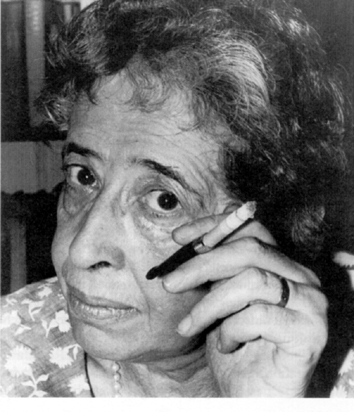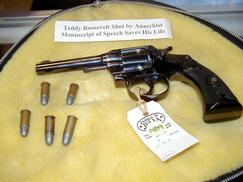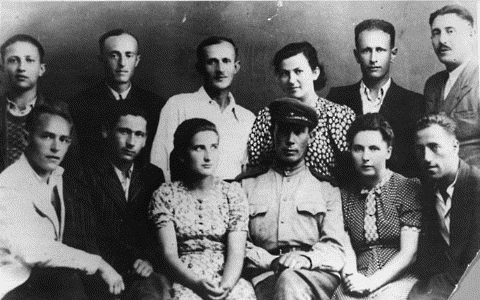NAVIGATION COLUMN
Home Page
Yahoo Groups:
History 1 Day 2
Nuremburg Data
Daily History Pages:
In Calendar Form
FAIR USE NOTICE: This site could contain copyrighted material the use of which has not always been specifically authorized by the copyright owner. We are making such material available in our efforts to advance understanding of historical, political, human rights, economic, democracy, scientific, environmental, and social justice issues, etc. We believe this constitutes a 'fair use' of any such copyrighted material as provided for in section 107 of the US Copyright Law. In accordance with Title 17 U.S.C. Section 107, the material on this site is distributed without profit to those who have expressed a prior interest in receiving the included information for research that could include educational purposes. If you wish to use copyrighted material from this site for purposes of your own that go beyond 'fair use', you could most likely need to obtain permission from the copyright owner.
|
October 14

1066 Battle of Hastings: At Senlac Hill, in Sussex, England, William of Normandy (William the Conqueror), defeats Harold of England to claim the English throne.

1586 Mary Queen of Scots goes on trial for conspiracy against Queen Elizabeth.
1633 Birth: James II, king of England (1685-88).

1644 Birth: William Penn, English Quaker leader and founder of Pennsylvania. "William Penn was the first great hero of American liberty. During the late seventeenth century, when Protestants persecuted Catholics, Catholics persecuted Protestants, and both persecuted Quakers and Jews, Penn established an American sanctuary which protected freedom of conscience. Almost everywhere else, colonists stole land from the Indians, but Penn traveled unarmed among the Indians and negotiated peaceful purchases. He insisted that women deserved equal rights with men. He gave Pennsylvania a written constitution which limited the power of government, provided a humane penal code, and guaranteed many fundamental liberties. For the first time in modem history, a large society offered equal rights to people of different races and religions. Penn's dramatic example caused quite a stir in Europe. The French philosopher Voltaire, a champion of religious toleration, offered lavish praise. "William Penn might, with reason, boast of having brought down upon earth the Golden Age, which in all probability, never had any real existence but in his dominions. "Penn was the only person who made major contributions to liberty in both the New World and the Old World. Before he conceived the idea of Pennsylvania..."
1651 Laws are passed in Massachusetts forbidding the poor to adopt excessive styles of dress.
1656 The first punitive legislation in Massachusetts against Quakers is enacted. The marriage of church-and-state in Puritanism leads them to regard the ritual-free Quakers as spiritually apostate and politically subversive.

1705 The English Navy captures Barcelona in Spain.
1712 Birth: George Grenville, British Prime Minister (1763-65).

1735 Methodist pioneer John Wesley first sets sail to America, to minister to the Indians under Georgia Gov. Oglethorpe. On this same date, Wesley begins keeping his famous, 55-year-long journal, whose last entry is dated 24 October 1790. (Bradley)
1774 US Revolutionary War: The first Continental Congress declares colonial rights in Philadelphia.
1773 Britain's East India Company's tea ships cargo is burned at Annapolis, Maryland.
1806 Napoleon crushes the Prussians at Jena.
1832 Blackfeet Indians attack American Fur Company trappers near Montana's Jefferson River, killing one.
1834 Henry Blair patents a corn planter.
1843 The British arrest Irish nationalist Daniel O'Connell for conspiracy.

1857 Birth: Elwood Haynes, auto pioneer, will build one of 1st US autos.

1867 The 15th and last Tokugawa Shogun resigns in Japan.
1882 Birth: Eamon De Valera, in New York, President of Ireland (1937-48, 51-54, 57-59).
1884 Transparent paper-strip photographic film is patented by George Eastman.
1890 Birth: Dwight David 'Ike' Eisenhower, in Denison, Texas, US army general, 34th US President (1953-1961).

1906 Birth: Hannah Arendt, in Germany, historian (Origins of Totalitarianism).

1912 Former US President Theodore Roosevelt is shot and wounded in an assassination attempt in Milwaukee. He is saved by the papers in his breast pocket and, though wounded, insists on finishing his speech. (Bradley)

1915 WW1: Britain and France declare war on Bulgaria.
1915 WW1: Oct 14-Feb 29, 1916 Lance Corporal Adolf Hitler serves as a dispatch runner during trench warfare in Flanders with 3 Company, 16 Reserve Infantry Regiment. (Maser)
1916 Birth: C. Everett Koop, US Surgeon General (1981-89).

1917 Mata Hari, a Paris dancer, is executed by the French after being convicted of passing military secrets to the Germans.
1920 Part of Petsamo province is ceded by the Soviet Union to Finland.

1922 Weimar: Hitler takes part in German Day in Coburg in collaboration with the Patriotic Associations. Political opponants are terrorized in the streets.

Coburg will eventually become the first town in which the NSDAP gains an absolute majority in municipal elections. (See June 23)
1930 Singer Ethel Merman stuns an audience when she holds a high C for sixteen moderate bars.
1933 The Geneva disarmament conference breaks up as Germany proclaims withdrawal from the disarmament initiative, as well as from the League of Nations, effective from 23 October. This begins the German policy of independent action in foreign affairs.
1933 Church and Reich: The bishop of the Nazi Christian Church, Ludwig Müller (Mueller), declares that Christianity started as a war against Jews.
1933 Holocaust: The Gestapo confiscates and liquidates the property of Hagibor, a Jewish sports organization.
1933 Reich Chancellor Hitler delivers a radio address: "No peace can be the perpetuation of war. At some point the victor and the vanquished must find a way to join in mutual understanding and trust. For fifteen years the German People have waited and hoped that the end of the war would also bring an end to the hatred and enmity. But it seemed that the aim of the Treaty of Versailles was not to bring mankind lasting peace but instead to keep it in a state of permanant hatred..."
1937 Holocaust: Professor von Verschuer protests to Reich Minister of Justice Gürtner that his expert opinion incriminating the defendant in a "race dishonor trial," has not been accepted and as a result, the defendant has been set free. (Science)

1939 WW2: German submarine U-47 penetrates the defenses of Scapa Flow, the British naval base in the Orkney Islands, and sinks the battleship Royal Oak, killing 833.

1939 WW2: The Polish submarine Orzel arrives in Britain having escaped internment in Estonia.
1939 Diary of Leon Gladun: Commotion and discussion in the barracks connected with the transport departing to Poland. Apparently we won't be here long--there's to be an exchange with the Germans.
1941 Holocaust: Beginning of the general deportation of German Jews to the concentration camps. (Persecution)

1943 Sobibor Uprising: A Jewish uprising, planned by Alexander Pechersky, a Soviet officer and also a Jew, together with other prisoners, breaks out at Sobibor. Eleven or twelve SS men, and about a dozen Ukrainian guards, are killed. Of the 600 Jews in the camp, 200 are shot or blown up in the minefields while escaping. 400 escape, of whom about 100 are later captured and killed. Others join Soviet partisan groups and are killed fighting; others die of typhus, and some are killed by hostile Poles. Only 30 are known to have survived the war, including Perchersky. (Atlas)

1943 WW2: Ernst Junger, in Paris, writes in his diary: "In the evening a visit from Bogo (Frederick Hielscher)." (As a precaution Junger referred to all important personages by a pseudonym. "Bogo" was Frederick Hielscher; "Kniebolo", Hitler.) "At a time when strong personalities are so scarce, although he is one of the people I have thought a lot about, I do not seem able to form an opinion about him. I thought once that he would make his mark in the history of our time as one of those people who are little known but are exceptionally intelligent. I think now he will play a more important role. Most of the young intellectuals of the generation which has grown up since the last war have come under his influence, and often have been through his school... He confirmed a suspicion I have had for a long time, that he has founded a Church. He has now gone beyond dogma, and is mainly concerned with liturgy. He has shown me a series of songs and festivities to celebrate the "pagan year," involving a whole system of gods, and colors and animals, food, and stones and plants. I noticed that the "consecration of light" would take place on February 2nd."..."I have noticed in Bogo a fundamental change that is characteristic of all our elite: he is throwing himself into metaphysics with all the enthusiasm of a mind brought up on rationalist lines. The same thing had struck me in the case of Spengler, and seems to be a propitious sign. It could be said, roughly, that while the nineteenth century was the century of reason, the twentieth is the century of cults, Kniebolo (Hitler) lives on them which accounts for the total incapacity of liberal-minded people to see even where he stands." (Strahlungen, Part Two of Junger's WWII Diary, 1949; Pauwels)

1944 WW2: German Field Marshal Erwin Rommel, suspected of complicity in the 20 July plot against Hitler, is visited at home by two of Hitler's staff and given the choice of public trial or suicide by poison. He chooses suicide to spare his family while the Nazis announce that he has died of wounds sustained in an air attack.
1944 WW2: British and Greek troops liberate Athens, ending three years of WW2 occupation by German troops.
1945 Nuremberg War Crimes Trials: British representative Sir Geoffrey Lawrence is elected President of the International Military Tribunal (IMT). (Maser II)

1947 Flying in a Bell XS-1 rocket-powered Army research plane, United States Air Force Captain Charles Yeager becomes the first man to break the sound barrier. (Mach 1.015).
1949 14 US Communist Party leaders are convicted of sedition.
1950 The Reverend Sun Young Moon is liberated from Hung Nam prison.
1950 Korea: Chinese Communist Forces begin to infiltrate the North Korean Army.
1953 President Eisenhower, a decent fellow but no constitutional scholar, promises to fire any federal worker taking the 5th amendment during loyalty questioning.
1958 Malagasy Republic becomes an autonomous republic within the French Community.
1964 The Reverend Martin Luther King is awarded the Nobel Peace Prize for advocating a policy of nonviolence. He is the youngest ever recipient of the Prize.
1968 Apollo 7 makes the first live telecast from a manned US spacecraft.

1969 In the UK, the 50p decimal coin is first issued, replacing the 10 shilling note. The 50p coin will be reduced in size in 1998.
1975 President Gerald R. Ford escapes injury when his limousine is struck broadside.
1980 Presidential nominee Ronald Reagan promises to name a woman to the US Supreme Court.
1983 US Marine peacekeeper Sgt Allen Soifert is killed by a sniper in Beirut.
1993 Gunmen shoot and kill Haitian Justice Minister Guy Malary, who'd been appointed by President Jean-Bertrand Aristide, in an apparent attempt to scuttle the agreement to return Aristide to power.
1994 The kidnapping of an Israeli soldier by Palestinian extremists ends with the soldier and four others being killed in a shootout. The same day, the Nobel peace prize is jointly awarded to Israeli Prime Minister Yitzhak Rabin and PLO leader Yasser Arafat.
2000 Israeli and Palestinian leaders agree to a summit aimed at putting an end to the worst Middle East violence in decades. The meeting with President Clinton in Egypt is an attempt to seek a truce and possibly a way back to the peace table.

2001 US warplanes again pound Afghanistan, beginning a second week of strikes against Islamic Taliban rulers and loyalists of Osama bin Laden.

2001 Jalalabad, long surrounded by militant training camps including some for bin Laden's al Qaeda network, sees particularly heavy bombardment.
2001

2004

2004

^ Top of Page ^
Click Here to email the Webmaster of this site.
Web Page Design by Nathan
This page was last updated on October 07, 2005
|
